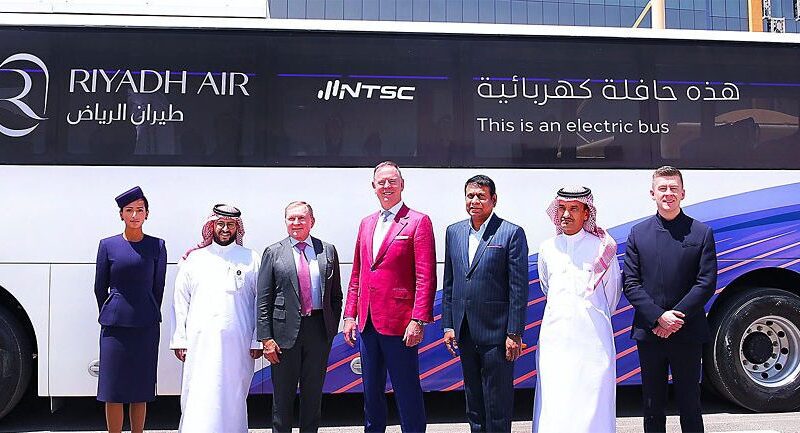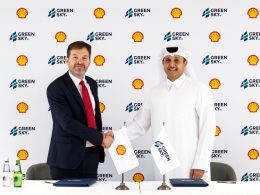Riyadh Air, the digitally native Saudi Arabian airline, has launched its first 47-seat electric coach fleet for employee transport. This initiative, a collaborative effort with the National Transportation Solutions Company (NTSC), a division of Petromin Corporation, and TAM-Europe, emphasises the airline’s commitment to the United Nations Sustainable Development Goals.
The fleet of electric buses will serve as daily transportation for Riyadh Air’s staff and aircrew throughout Riyadh, significantly reducing the airline’s carbon footprint.
The launch event saw notable attendees including Tony Douglas, CEO of Riyadh Air; Kalyana Sivagnanam, Group CEO of Petromin Corporation; and Gary B. Flom, CEO of NTSC.
Tony Douglas, CEO of Riyadh Air said “Sustainability is embedded in our DNA and we will reflect this across all Riyadh Air’s operations, from managing fuel efficiency in the sky to reducing carbon emissions on the ground. Investing in electric coaches is just one early initiative we can introduce to offset our environmental footprint as we demonstrate we will be a leader in helping achieve the aviation industry’s global net-zero agenda.”
Mr. Kalyana Sivagnanam, the Group CEO of Petromin Corporation said, “We are proud to have this partnership for sustainable mobility with Riyadh Air and contribute to their efforts to reach sustainability goals. This is a remarkable airline with environmental responsibility embedded in their DNA.”
This new venture is part of Riyadh Air’s broader sustainability strategy, which recently included a partnership with GE Aerospace to deploy state-of-the-art flight operations software solutions like Safety Insight, Fuel Insight, and FlightPulse. The partnership will equip the airline with data-driven analytics to optimise fuel consumption, increase safety measures and reinforce sustainability initiatives.
According to the International Energy Agency, private cars and vans accounted for over 25% of global oil consumption and around 10% of energy-related carbon dioxide emissions in 2022, contributing significantly to energy-related carbon emissions. By transitioning to electric vehicles and promoting carpooling, Riyadh Air aims to enhance fuel efficiency and reduce the number of individual cars on Riyadh’s roads.





















